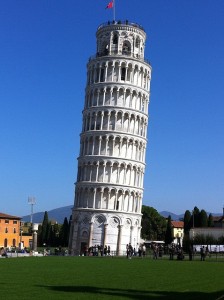
Throughout the poem Eliot revisits the imagery of towers. Towers are understood as signs of progress, of civic pride, of civic authority. Towers take on this authority.




In these lines, Eliot literally flips the tower function on its head. The tower that is used to establish a sense of time, Eliot uses to dissociate time. At first it seems that time in the present has ceased to function and all that is left is the ghost of that time. However, Eliot seems more interested in the cyclical nature of time given that the poem opens with a discussion of the inevitability of spring. Because of the cyclical nature of time, the tolling bell seems to be both echoes of past chimes and chimes in the present. The present has now lost its significance and each moment has now lost its sense of originality. Eliot has disoriented time and in doing so, he has undermined one of the most important ordering tools in society. The idea of “now” becomes unreal. The significance of time as a tool is echoed in the architecture of the towers. Clocks are positioned on these towers, these pillars of society.

The tower itself is undermined. Earlier, Eliot references falling towers: Jerusalem, Athens, Alexandria, Vienna, and London, which were epic civilizations “in their time.” The reference to falling towers immediately connotes biblical reference to the towers of Babel, which fell when God decided that humans had made too much progress and had become arrogant. All that was left was chaos. Eliot uses towers to undermine the arrogance of the concept of progress and disorients the conception of linear time.







